Wales' adopted children face 'mental health emergency'
- Published
"I couldn't put my finger on the reason for feeling the way I did"
Adopted children and young people in Wales are facing a "mental health emergency," a charity has warned.
Adoption UK said two-thirds of adoptive families surveyed in Wales "face a continual struggle for support".
Mimi Woods, 20, from Carmarthenshire, tried to take her own life as a teenager after being adopted aged three. She is calling for more support for people who have been adopted.
The Welsh government acknowledged "there is more to do".
Adoption UK surveyed adoptive families across the UK, including 335 from Wales, representing 351 children.
In a new report, the charity said the "mental health emergency" among adopted children and young people had been caused by "failings in a system that is not set up to meet their needs".
The report found most adopted young people suffered abuse, neglect or violence in their early years which had lasting impacts on their relationships, learning and health.
It said adoptive families were left to "pick up the pieces" when professional support was not provided.

'Identity is a big issue'
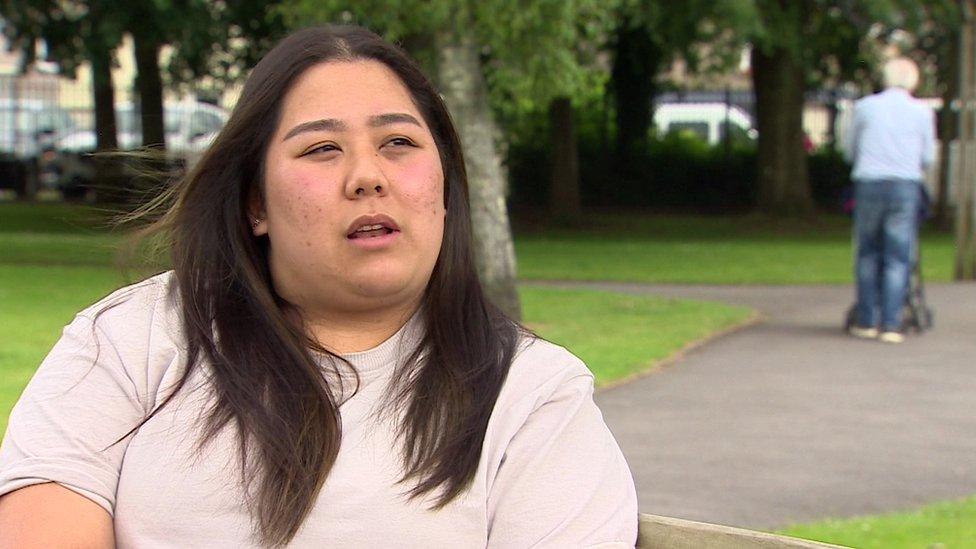
Mimi Woods tried to take her own life as a teenager after being adopted aged three
As a teenager, Mimi Woods could not understand why she struggled with her mental health.
She was thriving in school and had a loving family. But at just 15 years old, she tried to take her own life.
Reflecting now, Mimi realised a lot of the problems stemmed from being adopted and the trauma she would have suffered as a baby taken into care.
Born in Bangkok, Mimi lived in foster care and a children's home in Thailand before she was adopted as and moved to Ammanford in Carmarthenshire.
"It comes from a feeling of not being wanted and not having a place or an emotional connection to anyone," she said.
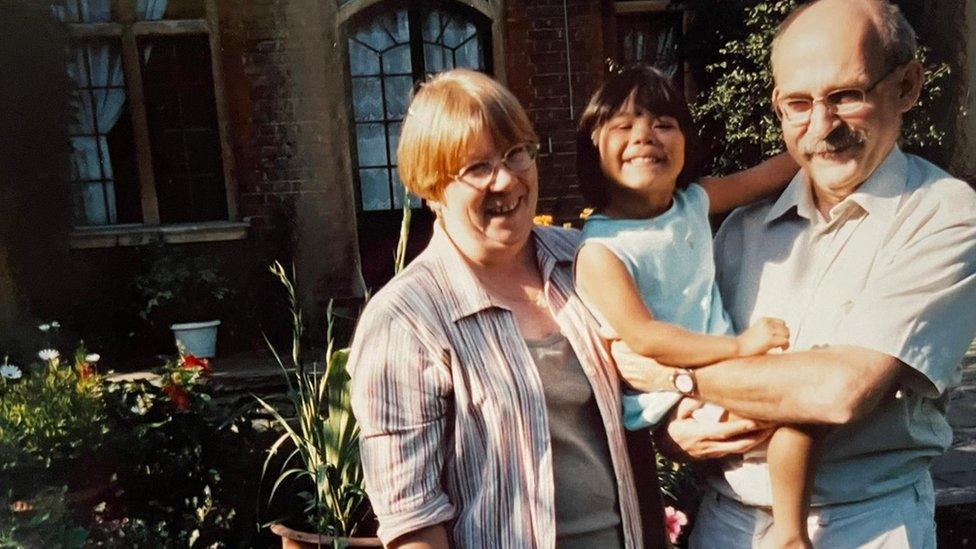
Mimi Woods says her adoptive parents Lynne and Gareth Woods have always been loving and supportive
She does not remember living in Thailand but said that being adopted had emotional consequences for her as a teenager, including "feeling lost within myself".
"I had no motivation and it felt as though there was no light at the end of the tunnel.
"When I was in secondary school, I felt like I didn't know who I was. I've been trying to find myself but I'm still looking now, aged 20.
"Identity is a big issue for me. I was adopted from Thailand, so everyone could tell I was adopted as my adoptive parents are white.
"My parents are lovely people and I had a really happy childhood and had no other issues in my life, so I couldn't put my finger on the reason for feeling the way I did.
"I've since learned that past trauma can affect you years later."
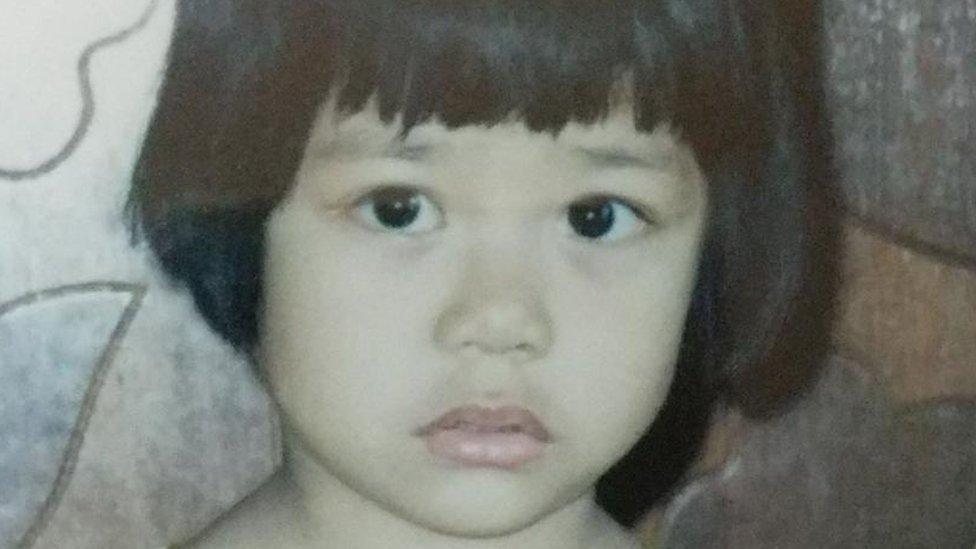
Mimi was adopted and moved to Carmarthenshire from Thailand when she was three
Mimi is involved in a group for young people who have been adopted and suffered with depression, trauma and suicidal thoughts.
She said speaking to other adopted people had really helped.
"My mental health is now better than what it was last year but I do still get those days where I cry a lot, overthink things and have no motivation."

'Failed by the system'
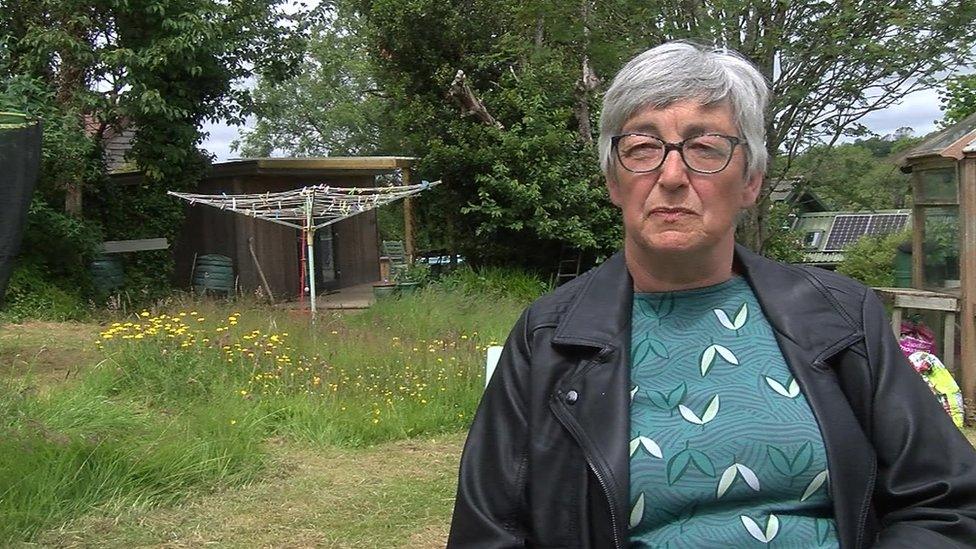
Families are "being failed by the system," says Ann Bell, director of Adoption UK in Wales
Ann Bell, director of Adoption UK in Wales, said: "For the third year running, two-thirds of respondents from Wales said they face a continual struggle for support.
"All too often, these families are being failed by a system which invests heavily in the placement of children for adoption, then fades into the background, often with terrible consequences for the mental health of the children and their adoptive families."
She said the survey highlights the consequences of the failure to provide early and consistent support for adopted young people.
The report found almost a quarter of adopted 16 to 25-year-olds in Wales were not in education, employment or training at the end of 2020 - more than twice as likely as UK averages.
'Falling through the cracks'
It also said that involvement in high risk and criminal activity had also steadily increased since its first Adoption Barometer report in 2019.
Problems were often compounded by children falling through the cracks between child and adult services, and almost three-quarters of parents who responded said their child's support reduced or stopped as the became too old to use adolescent services.
Another concern was the impact that contacting birth families can have when it was done outside any formal agreement.
The charity said it could have "devastating effects" on family stability and mental health.
As of 31 March 2020, there were 7,170 children in care in Wales - an increase of 5% compared with the previous year.
Of those, 245 (3%) were placed for adoption and 295 were adopted from care.
When families did get support, the report found there was a noticeable improvement despite the pandemic.
Ms Bell said investment from the Welsh Government had improved some aspects of adoption services, but that more needed to be done.
'More to do'
A Welsh Government spokesperson said it "welcomed" the report's findings because "the voices of children, young people and adoptive families are key to ensuring the right support is provided".
The spokesperson said it had "invested substantially" in the Welsh adoption service, but conceded "there is more to do and we will continue working with the sector to ensure we target those areas".
The government is also "committed to improving mental health services" and will continue to "develop our services so adopted young people making the transition to adulthood", the spokesperson added.
Suzanne Griffiths, director of the National Adoption Service for Wales, said it was important to "recognise and celebrate the improvement that has already taken place", but added the service was "not complacent about the need for continued improvement".
If you or someone you know has been affected by the issues raised in this story, information on available support can be accessed on the BBC Action Line website.
Related topics
- Published27 February 2021
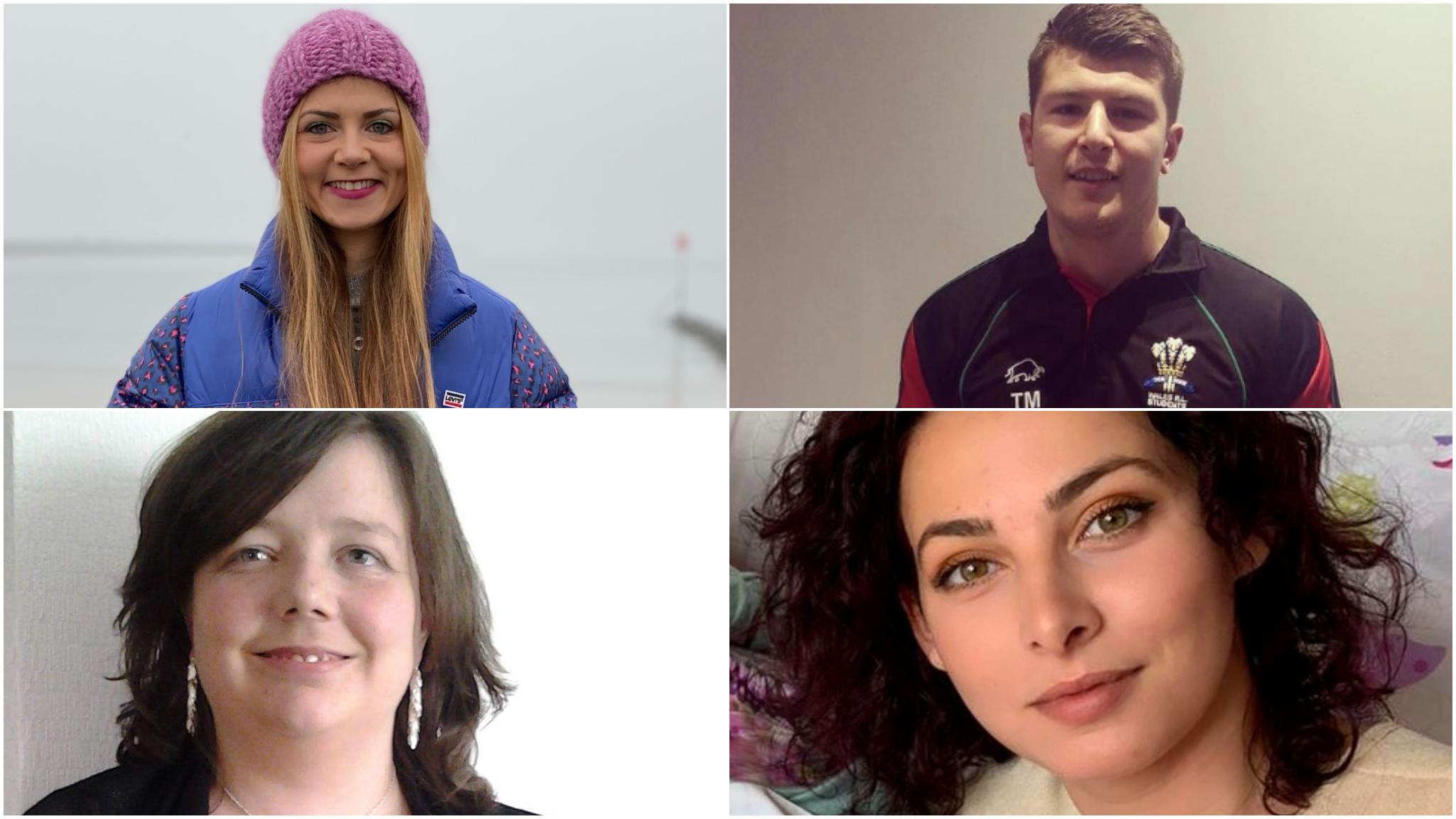
- Published3 February 2021
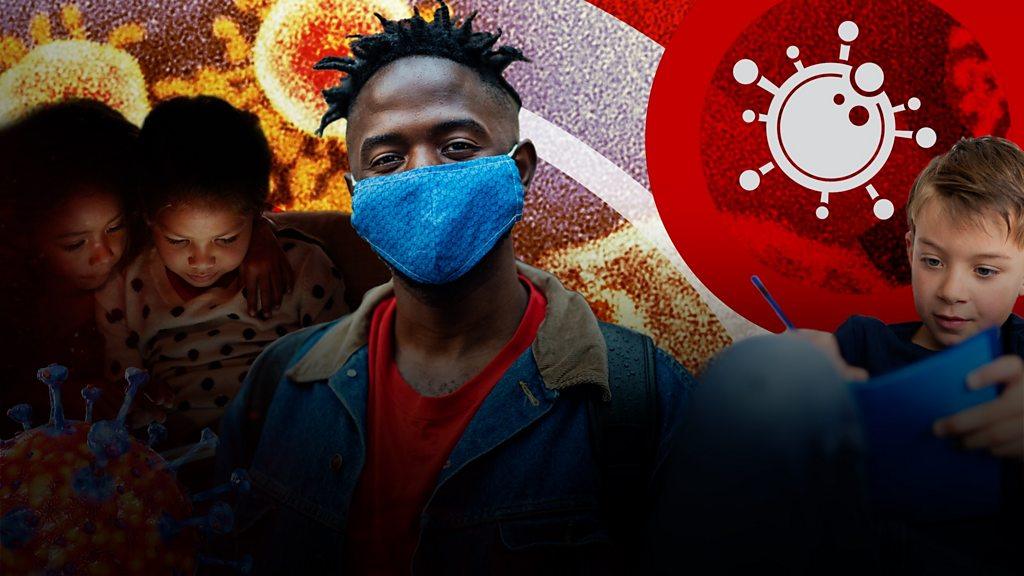
- Published17 January 2021
